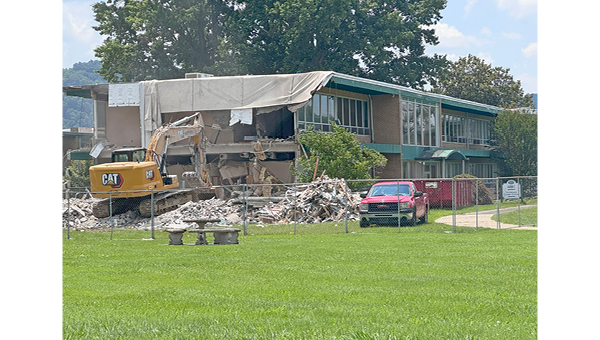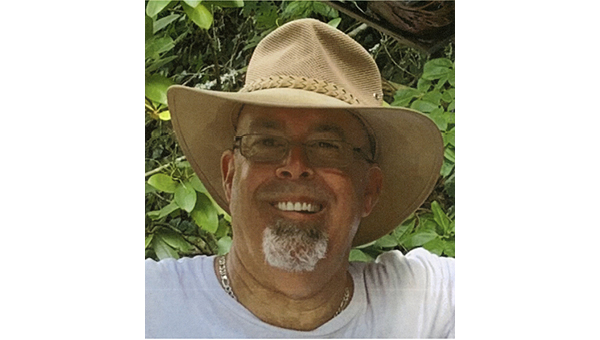Labor Day is just another ‘working’ day for many
Published 5:18 pm Friday, September 4, 2020













|
Getting your Trinity Audio player ready...
|
Somewhere along the line, Labor Day lost its meaning. Today, the holiday stands for little more than the end of summer, back to school, weekend sales, barbecues, and a day at the lake or hiking in the woods.
This, an election year, the holiday signals in-earnest campaigning by both Republicans and Democrats, as they seek the vote of the American worker.
Labor Day, in the beginning, was meant to honor not just the individual worker, but what workers accomplish together through activism and organizing. The labor movement fought for fair wages and to improve working conditions, but it was its political efforts that did nothing less than transform American society. Organized labor was critical in the fight against child labor and for the eight-hour workday and the New Deal, which gave us Social Security and unemployment insurance. Union workers sacrificed in America’s historic production efforts in World War II and pushed for Great Society legislation in the 1960s, such as Medicare.
These were victories that went well beyond the bread-and-butter issues of union members. They were shared achievements worthy of a national holiday for all. As Samuel Gompers, the founder of the American Federation of Labor, wrote in the New York Times in 1910, Labor Day “glorifies no armed conflicts or battles of man’s prowess over man… no martial glory or warlike pomp signals Labor Day.” Rather, “Of all the days celebrated for one cause or another, there is not one which stands so conspicuously for social advancement of the common people as the first Monday in September.”
Those shared victories came at a cost. Agitation for anti-trust legislation, shorter workdays and workweeks, and the right to organize was often portrayed as un-American and violently repressed. Labor Day began not as a national holiday but in the streets, when, on September 5, 1882, thousands of bricklayers, printers, blacksmiths, railroad men, cigar makers, and others took a day off and marched in New York City. “Eight Hours for Work, Eight Hours for Rest, Eight Hours for What We Will” read one sign. “Labor creates all wealth,” read another. A placard in the following year’s parade read, “We must Crush the Monopolies Lest they Crush Us.” The movement for the holiday grew city by city and eventually the state and federal authorities made it official. Perhaps the main reason Labor Day’s meaning has been lost amid picnics and holiday sales is the decline of unions. Union membership across the country has shrunk to less than one in eight (35.3 percent among public-sector workers and just 6.7 percent among private-sector workers in 2013) from nearly one in four throughout the 1970s. As membership declined, so did public support. According to a just-released Gallup tracking poll, a slim majority of Americans approve of labor unions—down from as high as three out of four in the booming postwar years.
In the global, post-industrial era, industrial unions have less clout, and public-sector unions face well-resourced attacks from the right. In some cases, unions have left themselves open to criticism by retreating to the bread-and-butter concerns of its membership like wages and benefits, and by not embracing change, continuous reform and accountability, and an expansive vision of shared progress.
Now, on Labor Day, Americans honor the country’s workforce and the end of summer. However, while most of us enjoy a day off, millions must continue to work to keep the country’s utilities going, its people safe and its economy running.
These workers, while being saluted, do not get to celebrate themselves. They may be at work simply because their boss requires it or in response to an emergency. In many cases, the work simply needs to continue. Firefighters must be ready to extinguish fires and nurses must tend to patients. Policemen will continue to patrol our streets and maintain law and order. Grocery stores will be open as will many restaurants and fast food businesses, meaning there will be cashiers on the job, people stocking shelves, and cooking food.
Research shows that Labor Day is one of the most common paid holidays, trailing only Thanksgiving, Christmas Day, and New Year’s Day.
However, Labor Day is more than just a holiday weekend; it’s an opportunity to pay homage to and reflect upon the labor movement of the past, as well as celebrate your fellow workers and look to the future. Barbecues, parties, and trips to the lake are excellent ways to celebrate Labor Day – after all, the idea was to create a holiday that allowed working Americans to take time away from work. Chances are good that most of the company you keep on Labor Day will include workers.
Whatever line of work you’re in, or if you are retired, take a moment this weekend to celebrate work and appreciate your fellow workers and those who came before. As the notion of work and labor evolve to fit this pandemic, it never hurt to stop and look to the past for lessons that could help shape tomorrow. But, especially remember those essential workers in this pandemic – nurses, doctors, EMTs, CNAs, policemen, firemen, grocery workers, teachers, food service workers – many of whom are on the job this weekend making this country safer and making it work for me and you!


















